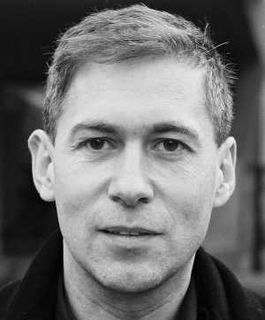Related Research Articles

The Max Planck Society for the Advancement of Science is a formally independent non-governmental and non-profit association of German research institutes. Founded in 1911 as the Kaiser Wilhelm Society, it was renamed to the Max Planck Society in 1948 in honor of its former president, theoretical physicist Max Planck. The society is funded by the federal and state governments of Germany.

The German Academy of Sciences at Berlin, German: Deutsche Akademie der Wissenschaften zu Berlin (DAW), in 1972 renamed the Academy of Sciences of the GDR, was the most eminent research institution of East Germany.
Prussian Academy may refer to:

The Royal Prussian Academy of Sciences was an academy established in Berlin, Germany on 11 July 1700, four years after the Akademie der Künste, or "Arts Academy," to which "Berlin Academy" may also refer. In the 18th century, it was a French-language institution, and its most active members were Huguenots who had fled religious persecution in France.

The Göttingen Academy of Sciences is the second oldest of the seven academies of sciences in Germany. It has the task of promoting research under its own auspices and in collaboration with academics in and outside Germany. It has its seat in the university town of Göttingen.

The Berlin-Brandenburg Academy of Sciences and Humanities, abbreviated BBAW, is the official academic society for the natural sciences and humanities for the German states of Berlin and Brandenburg. Housed in three locations in and around Berlin, Germany, the BBAW is the largest non-university humanities research institute in the region.

Alessandra Buonanno is an Italian naturalized-American theoretical physicist and director at the Max Planck Institute for Gravitational Physics in Potsdam. She is the head of the "Astrophysical and Cosmological Relativity" department. She holds a research professorship at the University of Maryland, College Park, and honorary professorships at the Humboldt University in Berlin, and the University of Potsdam. She is a leading member of the LIGO Scientific Collaboration, which observed gravitational waves from a binary black-hole merger in 2015.

Kai A. Konrad is a German economist with his main research interest in public economics.
Helmut Schwarz is a German organic chemist. He has been a professor of chemistry at the Technische Universität Berlin since 1978, and president of the Alexander von Humboldt Foundation since January 2008. In 2018, he was elected a foreign associate of the U.S. National Academy of Sciences.

Hans-Jürgen Treder was a German theoretical physicist and in the GDR, specializing in general relativity, astrophysics, and cosmology. He also had an interest in the history of science and philosophy.
Peter Fulde is a physicist working in condensed matter theory and quantum chemistry.
The Junge Akademie at the Berlin-Brandenburg Academy of Sciences and Humanities (BBAW) and the German National Academy of Sciences Leopoldina is supported by the two oldest scientific academies in Germany, and represents an interdisciplinary platform for up-and-coming academics. Its membership comprises fifty young academics and artists from a broad range of disciplines. All hail from the German-speaking countries and are committed to interdisciplinary discourse. Each year sees ten new members elected for a period of five years. The Junge Akademie was founded in 2000 as the world's first national institution for the promotion of young academics. Numerous countries have since used it as a model for the establishment of their own national academies for young academics.
Margit Theresa Rätzsch was a German chemist. She was rector at Technical University Leuna-Merseburg.

Petra Schwille is a German professor and a researcher in the area of biophysics. Since 2011, she has been a director of the Department of Cellular and Molecular Biophysics at the Max Planck Institute for Biochemistry in Martinsried, Germany. She is known for her ground-laying work in the field of fluorescence cross-correlation spectroscopy, and numerous contributions on model membranes. Her current research focuses around bottom-up approaches to building an artificial cell within a broader area of synthetic biology. In 2010, Petra received the Gottfried Wilhelm Leibniz Prize.

Peter H. Seeberger is a German chemist.
The Paul B. Baltes lecture is held annually by the Berlin-Brandenburg Academy of Sciences and Humanities. The lectures commenced in 2008 and are named after Paul Baltes, the German developmental psychologist.

Johanna Barbara Stachel is a German nuclear physicist. She is a professor in experimental physics at the University of Heidelberg. Stachel is a former president of the German Physical Society (DPG).
Constance Scharff, Ph.D., is a German zoologist and neuroethologist and Professor at the Free University of Berlin. She is particularly notable for her research on birdsong, neurogenesis and regeneration.
The Dannie Heineman Prize of the Göttingen Academy of Sciences and Humanities has been awarded biennially since 1961 for excellent recently published publications in a new research field of current interest. It is awarded to younger researchers in natural sciences or mathematics. The prize is named after Dannie Heineman, a Belgian-US philanthropist, engineer and businessman with German roots.

Matthias Scheffler is a German theoretical physicist whose research focuses on condensed matter theory, materials science, and artificial intelligence. He is particularly known for his contributions to density-functional theory and many-electron quantum mechanics and for his development of multiscale approaches. In the latter, he combines electronic-structure theory with thermodynamics and statistical mechanics, and also employs numerical methods from engineering. As summarized by his appeal "Get Real!" he introduced environmental factors into ab initio calculations. In recent years, he has increasingly focused on data-centric scientific concepts and methods and on the goal that materials-science data must become "Findable and Artificial Intelligence Ready".
References
- 1 2 "Academy Prize – Berlin-Brandenburg Academy of Sciences and Humanities". Startseite Berlin-Brandenburgische Akademie der Wissenschaften – Berlin-Brandenburgische Akademie der Wissenschaften. Retrieved 26 November 2021.
- ↑ "Preisträger – Berlin-Brandenburgische Akademie der Wissenschaften". Startseite Berlin-Brandenburgische Akademie der Wissenschaften (in German). Retrieved 27 November 2021.